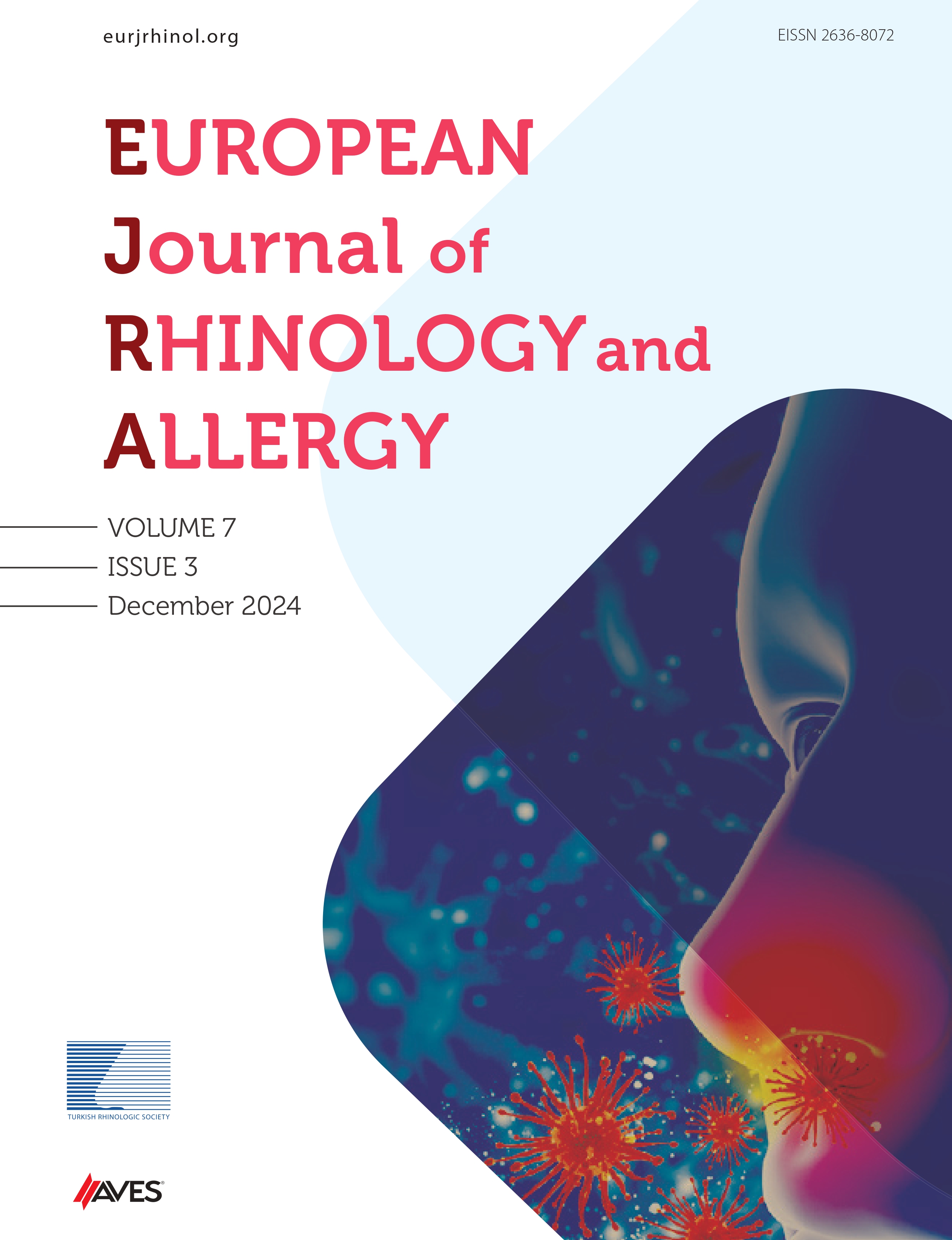Abstract
Objective: Chordoma is a rare, primary malignant bone tumor derived from primitive notochord remnants in the skull base. Chordomas are slow-growing, low-grade neoplasms that are more likely to cause local recurrence, but distant metastases are uncommon. The aim of this study was to report the preoperative and postoperative results of chordoma patients who underwent endoscopic endonasal surgery.
Material and Methods: This study included 10 patients (8 female and 2 male) who underwent endoscopic endonasal pituitary surgery due to chordoma in the Neurosurgery and Otolaryngology Departments of a tertiary medical center between May 2014 and August 2017. All data were obtained from patients’ folders and hospital information system retrospectively by evaluating complaints, operation notes, pathology results, radiological images, and postoperative control notes. Patients were evaluated in the postoperative period for a relapse or residual tumor, additional treatment, postoperative complications, and complaints which is regressed or not.
Results: The mean age was 51 years (range, 16-79). Patients were admitted to the Otolaryngology Clinic with headache reported in 2 patients, vision loss in 1 patient, vision loss with headache in 6 patients, and nasal obstruction and headache in 1 patient. A physical examination showed the abducens paralysis in 3 patients and occulomotorius paralysis in 1 patient due to tumor indentation. All patients underwent endoscopic endonasal transethmoid and transsphenoid surgery. Complete gross tumor removal was achieved with the transsphenoidal approach in 9 patients, and the transsphenoidal and far-lateral transcondylar approach in 1 patient.
Conclusion: Considering the local aggressive nature of tumor, radical surgery and adjuvant radiotherapy are the main treatments modalities of chordomas located in the skull base. The endoscopic endonasal transsphenoidal approach has become the gold standard method in daily practice due to its reliability and minimal morbidity.
Cite this article as: Ateş MS, Durusoy D, Eraslan S, Kaya İ, Biçeroğlu H, Göde S, et al. Our Results of Clivus Chordoma with Endoscopic Endonasal Surgery-Our Clinical Experiences. Eur J Rhinol Allergy 2018; 1: 32-7.

.png)

.png)